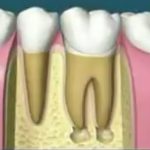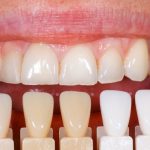The Good, the “OK” and the Ugly of Popular Drinks and Your Teeth
How much thought do you put into what you drink and its effect on your teeth?
If you’re like most folks, probably not much. You might think about if the caffeine level and whether it will keep you up at night, or the number of calories, but generally speaking oral health is not at the top of the list of considerations.
However, with more than half of Americans having at least one surgery beverage a day, it is important to take what you drink into consideration. And some of the other considerations might surprise you.
Just like with the food you eat, different beverages can cause tooth erosion, decay and, over time, more serious issues like periodontal disease. Below we will walk you through the good, the “ok” and the ugly when it comes to choosing beverages.
With the hot summer heat beating down, when you reach for something to quench your thirst, we want to make sure your teeth won’t hate you for it later! Let’s dive in.
The good
The best drink available isn’t expensive or exotic. In fact, it’s readily available at your home: water!
And don’t worry about buying expensive bottled water or something that comes from the Himalayas, either. Tap water in North Texas includes fluoride, which is the best thing that you can consume to protect your teeth.
Studies show that fluoride in community water systems prevents at least 25% of tooth decay in children and adults—even in areas with widespread availability of fluoride from other sources, like fluoride toothpaste or mouthwash. And in addition to the benefits of fluoride, water itself washes away food particles that get stuck in your teeth and cause cavities—without coating your teeth with something else that will do more harm than good. Water also dilute acids in the mouth that can cause tooth erosion. And finally, healthy water consumption also prevents dry mouth, which is another leading cause of dental issues.
Experts recommend drinking at least eight 8-ounce glasses of water a day. However, this doesn’t include the days you spend out in the hot, Texas sun! Remember to increase your ounces if you are exercising or spending time outdoors.
The “OK”
Since no other beverage can come close to the benefits of fluoridated water, even drinks that have some oral health benefit are worth mentioning in the “OK” category.
For example, milk—just like other dairy products—contains calcium, which can naturally strengthen your teeth. The National Institute of Health estimates that 99% of your body’s calcium is stored in your teeth and bones where it supports their structure and function. In addition to its strengthening qualities, new research has shown that dairy can reduce tooth decay thanks to its proteins, which help create a proactive film over the enamel. Milk can also lower the acid levels in the mouth, which helps combat bacteria that would otherwise accumulate on the gum line.
Another drink that has some oral health benefits are clear teas like white and green (those that are less likely to stain your teeth). Studies have shown that individuals who drink these teas suffer less gum recession and bleeding compared to those who chose other drinks. What’s more, some researchers have also found that green tea can reduce oral cancer risks.
The ugly
As you could probably guess, sugary beverages like fruit juices and sodas have little nutritional benefit and can be extremely harmful to your teeth.
When you drink soda, the sugars it contains interact with bacteria in your mouth to form acid. And this acid attacks your teeth. Both regular and sugar-free sodas also contain their own acids, and these attack the teeth, too. The two main effects soda can have on your teeth are putting them at risk for cavities and erosion:
- First, the acid in sodas and fruit juices can wear away the enamel on your teeth. Once the enamel is gone it will not be regenerated. This will soften the teen and increase their susceptibility to cavities. That leads us to the next potential issues: cavities.
- Once the enamel is worn down, the sugars and acids can affect the next layer of the tooth, the dentin. The sugar can become embedded in the tooth and, if not removed quickly, can lead to tooth decay. If you choose to drink these beverages, it is important to do it in moderation, use a straw to reduce exposure to the teeth, and wash your mouth out with water after.
Have some other favorite drinks you want us to take a look at? Leave us a comment or start the conversation on Facebook, and we’ll be happy to tell you all you need to know!






